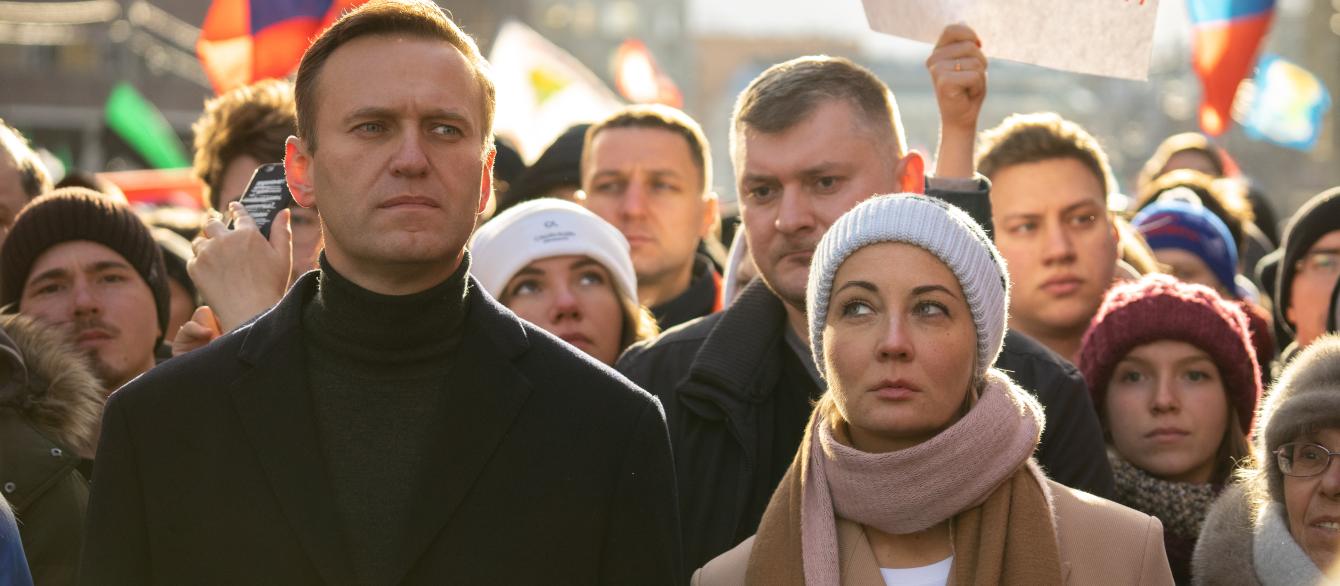Added Feb. 17: ‘I Have to Say Goodbye. But I Don’t Want to Go to Jail’ Davis Center associate Yevgenia Albats, a close friend of Navalny’s, mourns his death, and Russia’s future, in an interview with Politico Magazine.
Russian authorities reported on Feb. 16 that jailed opposition activist Alexei Navalny has died in a remote Arctic prison.
As noted by the New York Times, Navalny “had been serving multiple prison sentences — on what supporters said were fabricated charges — that would likely have kept him locked up until at least 2031.” The newspaper reported that he had last been seen publicly on Feb. 15, appearing via video link for a court hearing and looking healthy.
Confirming the reports and gathering details will take time, even for Navalny’s family. Meanwhile, for those who want to learn more about the media-savvy anti-corruption whistleblower who fearlessly defied the Kremlin, even after a poisoning attempt in 2020, we have gathered a few informative talks from the Davis Center archive:
The Navalny Phenomenon: A Self-Made Hero
How has Alexei Navalny, jailed as a prisoner of conscience in Russia, evolved from an anti-corruption blogger to the leader of the Russian opposition, the one person willing to publicly challenge Vladimir Putin?
Yevgenia Albats, Alexandra Vacroux
June 3, 2021
Navalny and Next: Possibilities, Prognosis, and Perceptions in Russia
After a botched attempt to poison Navalny, the Kremlin decided to sentence him to over two years in prison upon his return to Russia in January 2021. Navalny responded with a bombshell video about the corruption around "Putin's Palace." Unsanctioned mass protests followed and were met with mass indiscriminate arrests and police violence. The political ante in this back-and-forth has certainly risen — but to what end?
Greg Yudin, Svetlana Yerpyleva, Ilya Budraitskis, Sean Guillory
March 15, 2021
‘Novichok’ as Political Instrument
The investigative journalism platform Bellingcat identified a long-running FSB operation to trail Navalny with the help of chemical weapons experts involved in the research and development of Novichok. Bellingcat representatives also witnessed the phone call between Navalny and one of the men apparently engaged in the clean-up operation after the poisoning and confirmed the overall plausibility of his confession.
Christo Grozev, Yevgenia Albats
Feb. 4, 2021
What Does the Navalny Poisoning Tell Us About Russia’s Regime?
The Kremlin has used arrest and imprisonment to suppress dissent. Now it appears that it is willing to use banned chemical weapons to silence prominent opposition figures. What does Alexei Navalny’s alleged poisoning tell us about the evolution of the regime in Russia?
Timothy Colton, Sergei Guriev, Yevgenia Albats
Oct. 21, 2020




